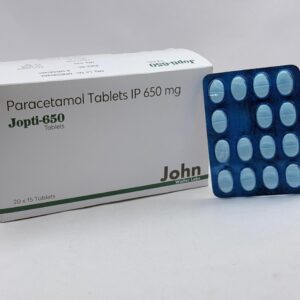On April 22, 2025, a tragic attack in Pahalgam, Jammu & Kashmir, claimed the lives of 26 individuals, predominantly tourists. This incident has not only intensified Indo-Pakistani tensions but also reverberated across various sectors, notably the pharmaceutical industry. The subsequent trade restrictions and diplomatic measures have had profound implications for businesses on both sides.
Impact on Pakistan’s Pharmaceutical Sector
Pakistan’s pharmaceutical industry is heavily reliant on India for raw materials, with estimates suggesting that 30–40% of its Active Pharmaceutical Ingredients (APIs) and finished products are sourced from across the border . The sudden suspension of trade by India, including the closure of the Wagah-Attari border and the banning of Pakistani imports, has left Pakistani manufacturers scrambling for alternatives.
The Drug Regulatory Authority of Pakistan (DRAP) has initiated emergency measures to mitigate the crisis. These include seeking new suppliers from countries like China, Russia, and select European nations. However, establishing new supply chains is a time-consuming process, often taking several months to ensure compliance with Good Manufacturing Practices (GMP) and regulatory standards.
The urgency of the situation is underscored by the potential shortages of critical medications, such as anti-rabies vaccines, anti-snake venom, and cancer therapies. The Pakistan Pharmaceutical Manufacturers Association (PPMA) has appealed to the government to exempt the pharmaceutical sector from the trade ban, emphasizing the life-threatening consequences of disrupted supplies
Consequences for India’s Pharmaceutical Industry
While India has imposed trade restrictions, the domestic pharmaceutical sector faces its own set of challenges. Companies that previously relied on Pakistani suppliers for certain APIs and finished products are now compelled to find alternative sources. This shift could lead to increased production costs and potential delays in the availability of specific medications.
Moreover, the heightened tensions have diverted attention and resources towards national security concerns, possibly leading to delays in regulatory approvals and disruptions in the supply chain. This environment of uncertainty may deter foreign investments and collaborations, which are vital for the growth and modernization of India’s pharmaceutical industry.
The Role of Monopoly Franchise Companies in India
In this turbulent landscape, companies like John Walter Labs have emerged as pivotal players. As a leading Monopoly Franchise Company in India, John Walter Labs offers a unique business model that provides exclusive rights to franchise partners, ensuring a steady supply of essential medicines even amidst trade disruptions.
Their Monopoly Based Pharma Franchise model enables entrepreneurs to operate under a trusted brand, reducing the risks associated with sourcing and distribution. This approach not only benefits the franchise partners but also ensures that consumers have access to quality medications without significant interruptions.
Chandigarh’s Pharmaceutical Landscape
Chandigarh, known for its robust healthcare infrastructure, is home to several top pharma companies, including John Walter Labs. These companies have played a crucial role in maintaining the supply of pharmaceuticals during the ongoing crisis. Their established networks and strong relationships with suppliers have enabled them to navigate the challenges posed by the trade restrictions effectively.
Additionally, the region’s strategic location and well-developed logistics infrastructure have facilitated the swift movement of pharmaceutical products, ensuring that both urban and rural areas continue to receive necessary medications.
Looking Ahead
The Pahalgam attack has underscored the vulnerabilities in the global pharmaceutical supply chain. While immediate responses have focused on mitigating the crisis, long-term strategies must include diversifying supply sources, investing in domestic production capabilities, and fostering international collaborations.
For companies like John Walter Labs, the current situation presents an opportunity to reinforce their commitment to quality and reliability. By continuing to offer exclusive franchise opportunities and maintaining stringent quality control measures, they can play a significant role in stabilizing the pharmaceutical market in India.
In conclusion, while the Pahalgam attack has disrupted trade and pharmaceutical businesses, it has also highlighted the resilience and adaptability of the industry. With strategic planning and collaboration, the sector can overcome these challenges and continue to serve the healthcare needs of the population effectively.








